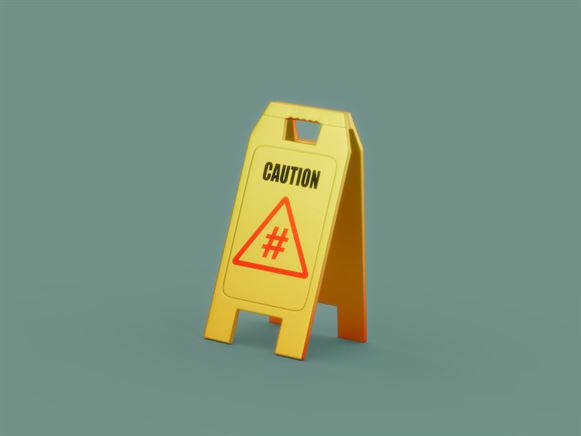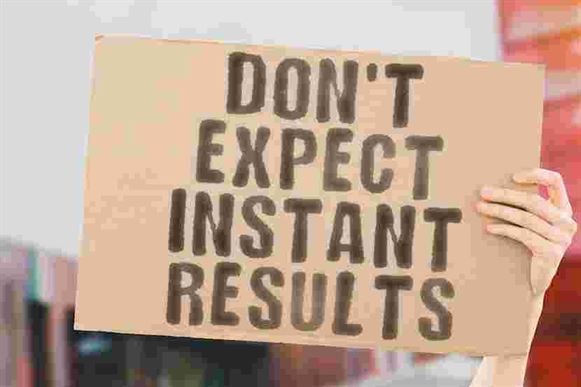
The Truth about Mental Health on Social Media

Social media can be a minefield; there's so much information out there and it's tough to tell what's true and what's not. There are over 4.59 billion social media users across the world and this number continues to grow at a rapid pace. Technology and the world wide web is blurring the lines between professionals and non-professionals when it comes to mental health. In fact, nearly 49% of consumers say they trust and depend on influencer recommendations to make key decisions.
There is no doubt social media can be a powerful tool for raising awareness, but it can also perpetuate misinformation and unhelpful advice. Here are seven tips to help you vet mental health information on social media. By following these tips, you can make sure you are getting accurate, evidence-based information which will help you maintain your mental well-being. So let's get started!
1. Check The Source
When you are reading something on social media, it's important to take a step back and ask yourself: who is this coming from? Oftentimes, people will share information without checking to see if it's accurate. So before you believe everything you read, make sure to do some research on the source. A good rule of thumb is to check whether the source is peer-reviewed or not. If it is, that means other experts in the field have looked at it and deemed it credible. If not, then take what you read with a grain of salt.
2. Look For Credentials
Social media can be an amazing platform for connecting with experts, but it's always wise to take a few extra steps to make sure you are getting accurate information. Some questions you need to ask are: is the account a verified mental health organization or professional? Are they certified in their area of expertise? Be sure to do your research before relying on the advice of any individual or organization.
3. Verify Information
Make sure the information provided is based on evidence-based practices. Does the advice rely on research or anecdotal experiences? Are there any studies which support their advice? References are key when you are trying to determine whether something is credible or not. After all, anyone can make claims on the internet--but not everyone backs them up with evidence. So if you are reading something that sounds too good (or too bad) to be true, scroll down and see if there are any references listed. If there are none, that's a red flag! However, even if there are references listed, that doesn't necessarily mean the information is accurate. The best way to check is to click on the references and see if they lead you to credible sources.
4. Consider The Timing
Topical posts can be encouraging and may spark a conversation, but it’s important to consider the context. Is the post outdated or does it offer current information? Is the account trying to capitalize on the current mental health conversation?
5. Be Aware Of Bias
Everybody has biases when it comes to mental health. It’s important to look for posts which have a balanced viewpoint. Are perspectives from different backgrounds, genders or cultures represented? If you notice a lack of diversity or obvious bias, it’s a sign the information might be unreliable.
6. Look For Reviews and Comments
User experiences and reviews can go a long way in giving you an idea of the accuracy of the information on social media. Have there been any complaints about the account or content? You can also check to see if the account has responded to any criticisms or queries. It’s important to read reviews and opinions in order to get a more rounded perspective.
7. Consider the Source's Motive
It's also important to think about why the source is sharing this information in the first place. What's their motive? Are they trying to sell you something? Are they pushing a certain agenda? Oftentimes, people will share inaccurate information because they stand to gain something from it--whether it is money, attention or clicks. So it's important to consider the source's motive before taking anything at face value.
8. Seek Professional Advice
It’s always important to seek out professional advice if you are struggling with mental health issues. Don’t rely on social media alone when it comes to getting the help and support you need.
Vetting mental health information on social media is a crucial step in maintaining your own mental health and well-being. As long as you take the time to research and verify the information, you can ensure you are getting quality advice from reliable sources. By following these tips, you can make sure you're only reading accurate, evidence-based information about mental health on social media.
Articles
Build your awareness and get inspired with our researched articles on how you can strengthen your well-being
Popular Topics
An OTP has been sent to the email address
provided.
Please check your Inbox and Spam folders.

What Would You Like to Speak with a Specialist About?
Mental Fitness Journey starts Now!
Chearful Connects you with Top-tier Qualified Wellness specialists for the Price of a cup of Coffee!

Next Steps
- A Client Team member will reach out to you to schedule a session with the most suitable specialist.
- You will receive an email with a 10% Discount Code* for your 1st session.
- We invite you to Explore the Platform & Sign Up today! *Upto a maximum of $10 discount on a session purchased




 3206 Read
3206 Read



.jpg)







.png)

.jpg)

.jpg)




.jpg)





































.jpg)

.jpg)
.jpg)





























